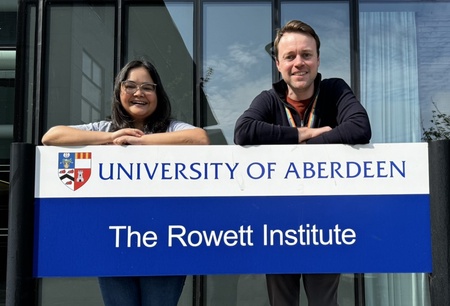Research into an “exciting potential new avenue” towards treating a rare and sometimes life-threatening disorder has generated another promising result.
Scientists at the Rowett Institute have been looking further into the future use of gene therapy to help individuals with lipodystrophy.
At present there is no cure for the debilitating condition – which reduces or removes the body’s ability to properly make crucial stores of fat.
This typically causes severe metabolic complications, including fatty liver disease and diabetes and can reduce life expectancy by more than 30 years.
Treatment options remain very limited.
But a team led by Dr George McIlroy and funded by Diabetes UK is delighted that its latest work examining tissue-selective gene therapy shows real promise of a route towards changing that.
The findings are set out in a paper titled Preclinical evaluation of tissue-selective gene therapies for congenital generalised lipodystrophy, published in Gene Therapy.
It is the first manuscript to feature Rowett Institute PhD candidate Mansi Tiwari as lead author.
“Adipose-selective gene therapy is sufficient to restore adipose tissue development and metabolic health in a pre-clinical model of generalised lipodystrophy,” the paper concludes.
“This provides an exciting potential new therapeutic avenue for an effective, targeted, and thereby safer therapeutic intervention.”
Dr McIlroy, a Diabetes UK RD Lawrence Fellow, said: “Our recent study examining tissue-selective gene therapy offers a promising new approach for those suffering from lipodystrophy. By specifically targeting adipose tissue, we can potentially correct the root cause of metabolic imbalances of this devastating disorder, paving the way for more effective and personalised treatments.”
Dr Jessica Farrow, Research Communications Officer at Diabetes UK, said: "We're pleased that, with our funding, Dr McIlroy and his team's research offers new hope for people with diabetes and lipodystrophy. This development could improve the quality of life and life expectancy for those affected."


